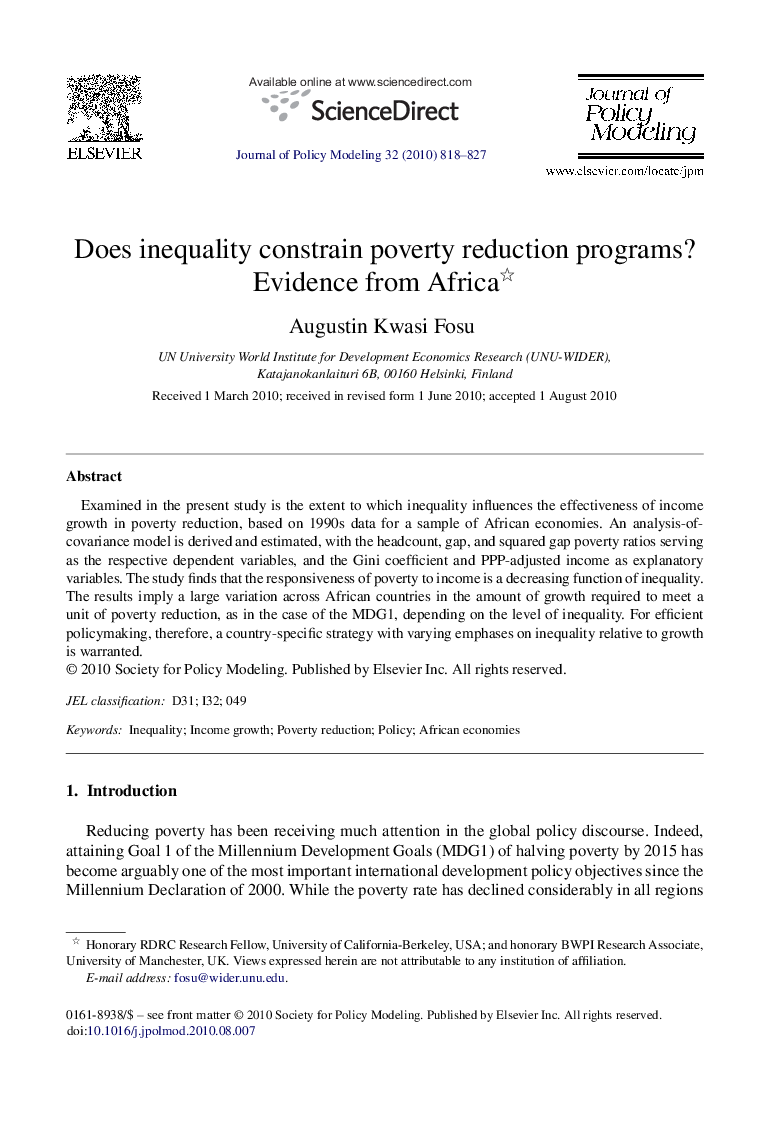| Article ID | Journal | Published Year | Pages | File Type |
|---|---|---|---|---|
| 968666 | Journal of Policy Modeling | 2010 | 10 Pages |
Examined in the present study is the extent to which inequality influences the effectiveness of income growth in poverty reduction, based on 1990s data for a sample of African economies. An analysis-of-covariance model is derived and estimated, with the headcount, gap, and squared gap poverty ratios serving as the respective dependent variables, and the Gini coefficient and PPP-adjusted income as explanatory variables. The study finds that the responsiveness of poverty to income is a decreasing function of inequality. The results imply a large variation across African countries in the amount of growth required to meet a unit of poverty reduction, as in the case of the MDG1, depending on the level of inequality. For efficient policymaking, therefore, a country-specific strategy with varying emphases on inequality relative to growth is warranted.
